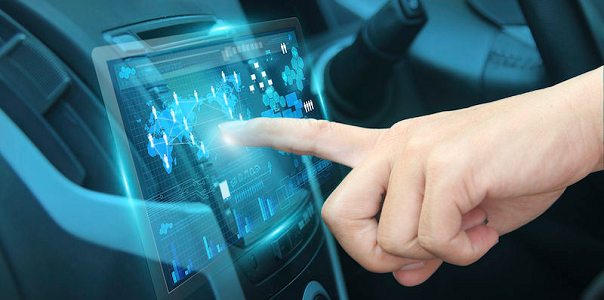Digitization is re-imagining the automotive industry’s business models. The digital economy combines physically and electronically connected devices with Big Data. Platform-based innovation and hyper connectivity are shaping the new world of the automobile. Digitization has the potential to both recast how we use transportation and generate significant value for industry and society.
The speed of this transformation is governed by the advances in connectivity technology, changes in consumer behavior, the emergence of new business models, and environmental trends and regulatory practices. The impact has been seen mostly in the after sales stage of the value chain.
Global trends that are reshaping the automotive industry
A series of global trends are combining to herald an era of unprecedented innovation in the automotive industry. Three global macro trends are disrupting the traditional market and competitive boundaries:
- Urbanization. City populations are booming. For the first time in history, more than half the world’s population lives in urban areas. A recent study found that 64% of all travel made is within urban environments and that the total amount of urban kilometers traveled is expected to triple by 2050.
- Many municipalities around the world are increasingly regulating how their citizens move through the dense urban landscapes via congestion pricing and access restrictions.
- Shifting global population dynamics. The global population is growing, ageing and evolving.
- Rapid expansion in global connectivity. Most dramatically, the world economy is transforming into a digital economy with a proliferation of cloud computing, big data and analytics, mobility and broadband connectivity, e-commerce, social media and the use of smart sensors and the Internet of Things.
Benefits of digital transformation created for automotive industry
Digital transformation can create value for the automotive industry by breaking the mold of the entire automotive value chain as it creates greater efficiencies and cost savings.
Digital transformation can also bring societal benefits. Today, there are real and substantial transportation costs. A driver in Moscow, Istanbul, Mexico City and Rio de Janeiro wastes more than 100 hours a year in congested traffic. Each year, road accidents cost $518 billion² and are responsible for 1.25 million deaths around the world. Globally, air pollution from transportation causes more than 200,000 premature deaths a year and approximately 30% of the carbon dioxide (CO2) emissions behind climate change. Digitization of transportation has the potential to reduce many of these costs.
Today, there is a greater need for both personalization and interconnectivity in the car-buying experience. There are large trends across all consumer-facing industries towards integration. Drivers don’t expect to enter a bubble in their cars, they expect seamless connectivity. As information availability has empowered consumers, who expect efficiency and personalization in all products, the automotive industry is finding the need to become fully digital in order to justify its price in a technologically competitive market.
The manufacturers that meet two key goals will experience prolonged success in the industry. First, they must redefine value for consumers through novel products and services. Second, they must pursue innovation through an agile, customer-centric approach. Both of these goals will be reached through successful implementation of digital tools and resources.
The future of the auto industry under tech revolution
Digital transformation in the auto industry doesn’t end there either. There are many other factors and new developments to explore as well.
1. Connected vehicles
Internet and technology-connected vehicles are hardly new, but the potential for growth has only just begun. In the auto industry, this sector represents a potential $45B market, with a sub-industry certain to grow as automobiles integrate telematics, smart data, and other technologies.
2. Autonomous vehicles
The most notorious and disruptive advancement is autonomous vehicles. —but there is still a massive debate to overcome before we see self-driving cars or vehicles on the road any time soon.
3.Retail improvement
E-commerce and omni channel retail has permeated most consumer industries—and automakers must digitize the buying process in order to improve experience for all parties, across all channels. Auto manufacturers should allow their customers to explore their vehicles and purchasing opportunities through robust e-commerce experiences, creating a space for consumers to shop or buy online.
Taken one step further and the enhanced digital capabilities may mean a cut back in inventory at dealerships as they can instead display product usability through VR.
4.Attracting the right talent
Leading brands will face increased competition from new technology companies as they explore new opportunities for growth. Many companies will face a so-called “innovator’s dilemma,” where new technology seems irrational to explore. For these parties, myopia may lead to their defeat at the hand of nimble startups and tech companies. They should instead focus on attracting digitally native talent from the technology industry. In this way, they can import the talent needed to remain competitive, instead of confronting it head-on.
Change, inherently, creates challenges for any industry. The rapid changes we are experiencing today further ups the stakes for businesses—especially for the struggling automotive industry.Focusing on the right opportunities and having a solid digital strategy will enable car companies to stay ahead of the curve and find new ways in which to grow. Does your organisation need an effective digital transformation strategy? do contact Naazreen on 2331636 or via e-mail at naazreen.ghoorun@infosystems.mu .

